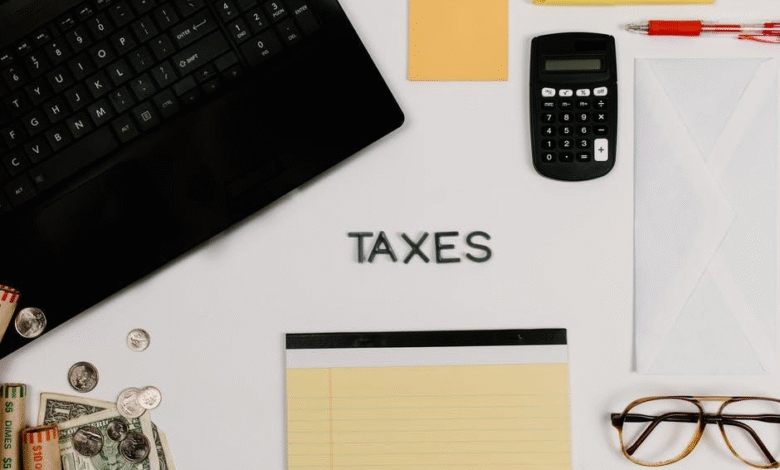Understanding 9 Tax Strategies to Maximize Returns

Want to keep more of your hard-earned money? Stop letting taxes take a big bite out of your income. With the right tax strategies, you can lower your tax bill and boost your returns.
In this guide, we’ll walk you through practical tips, like using tax deductions, credits, and tax-deferred investments, to help you keep more cash in your pocket. It’s time to take control of your finances and cut down those hefty tax bills. Ready to make the most of your money?
Let’s get started.
1. Maximize Contributions to Retirement Accounts
Investing in retirement accounts is one of the most effective tax strategies available. Contributions to traditional IRAs or 401(k) plans are often tax-deductible, which means that you can reduce your taxable income by the amount you contribute. For the tax year 2023, individuals under age 50 can contribute up to $6,500 to an IRA, while those 50 and older can contribute up to $7,500.
For 401(k) plans, the limits are even higher-with a maximum contribution of $22,500 (or $30,000 for those 50 and older). By maximizing your contributions, you not only save for retirement but also enjoy immediate tax benefits.
2. Leverage Health Savings Accounts (HSAs)
Leveraging Health Savings Accounts (HSAs) is an effective tax strategy that can help individuals and families maximize their returns while also managing their healthcare expenses. HSAs allow individuals to contribute pre-tax dollars to an account that can be used for qualified medical expenses. The funds in the HSA can grow tax-free and can be withdrawn at any time for medical expenses without incurring taxes.
This can provide a significant tax advantage and can help individuals save money in the long run. Additionally, unused HSA funds can roll over year to year, making it a valuable long-term investment. Utilizing HSAs as a tax strategy can not only maximize returns but also provide financial security for future healthcare expenses.
3. Take Advantage of Itemized Deductions
One effective tax strategy to maximize returns is to take advantage of itemized deductions. Itemized deductions are specific expenses that can be deducted from your taxable income, reducing the amount of taxes you owe. These deductions can include expenses such as mortgage interest, state and local taxes, charitable donations, and medical expenses.
By carefully keeping track of and taking advantage of these deductions, you can potentially lower your overall taxable income and increase your tax return. However, it is important to keep in mind that itemized deductions may not always be the best option, so it is crucial to weigh the pros and cons before deciding to take them. Overall, utilizing itemized deductions is a valuable tactic for maximizing returns and keeping more money in your pocket.
4. Utilize Tax Credits
These credits are a type of tax incentive that reduces the amount of tax owed on a dollar for dollar basis. They can be used to offset a wide range of tax liabilities, such as income, property, or sales tax. There are various tax credits available, including those for energy-efficient home improvements, education expenses, and charitable donations.
By taking advantage of these credits, taxpayers can significantly reduce their tax burden and keep more money in their pockets. It is important to carefully research and understand the eligibility requirements for each credit to fully utilize them and reap the benefits.
5. Harvest Tax Losses
Tax-loss harvesting is a technique that involves selling investments that have decreased in value to offset gains from profitable investments. This strategy can help to minimize the capital gains tax you pay on your investments.
For example, if you sold stocks for a $10,000 gain but had also lost $3,000 on other stocks, you would only owe tax on $7,000 of gains. By strategically timing the sale of investments, you can effectively lower your overall tax bill while maintaining your investment portfolio’s growth potential.
6. Consider Incorporating Your Business
If you own a small business, incorporating can provide significant tax advantages. As a corporation, you could potentially benefit from lower tax rates, as well as a host of deductions not available to sole proprietors.
For instance, corporations can deduct employee salaries and benefits as business expenses. This not only reduces taxable income but can also pave the way for better asset protection. Businesses that choose to operate as S Corporations or LLCs can also enjoy pass-through taxation, which can further optimize tax liabilities.
7. Explore Flexible Spending Accounts (FSAs)
Flexible Spending Accounts (FSA) offer a tax-saving opportunity for employees which allow them to set aside pre-tax dollars for qualified expenses. It is one of the tax strategies that can greatly help maximize returns for individuals. FSAs can be used for various healthcare expenses such as deductibles, co-pays, and prescription costs, as well as dependent care expenses like daycare and summer camps.
By utilizing FSAs, individuals can reduce their taxable income and save money on their taxes, ultimately increasing their overall returns. Individuals need to explore and understand the potential benefits of FSAs, as they can help them save money and take control of their healthcare and dependent care expenses.
8. Plan for Capital Gains and Losses
Understanding the implications of long-term versus short-term capital gains is essential in tax planning. Short-term capital gains are taxed at ordinary income tax rates, which can be higher than long-term capital gains, taxed at rates ranging from 0% to 20%.
To reduce your tax burden, consider holding investments for over a year before selling. Engaging in strategic tax planning focused on capital gains can enhance your net returns when you’re inclined to sell appreciated assets.
9. Maintain Accurate Records
Keeping meticulous records can help ensure that you take advantage of every possible deduction and credit. When tax time arrives, having organized documents can make the process smoother and may prevent the risk of missing out on potential savings.
Ensure you keep receipts, pay stubs, and any relevant documents for at least three years. Not only does it simplify the filing process, but it also aids in preparing for potential audits.
Learn Effective Tax Strategies to Maximize Your Returns
Implementing effective tax strategies can significantly impact the returns on your investments and overall financial success. By utilizing tax-planning techniques such as tax-loss harvesting, tax-efficient portfolio allocation, and retirement account contributions, you can reduce your tax liability and maximize your returns. Don’t wait any longer, consult a financial advisor today to create a personalized tax strategy and start maximizing your returns!
Looking for more tips and advice? You’re in the right place! Make sure to bookmark our page and come back to check out more interesting articles.


